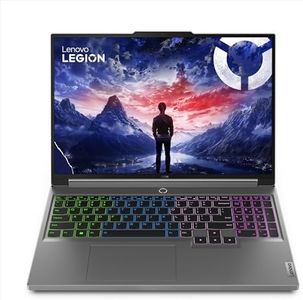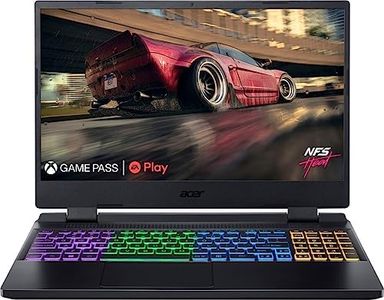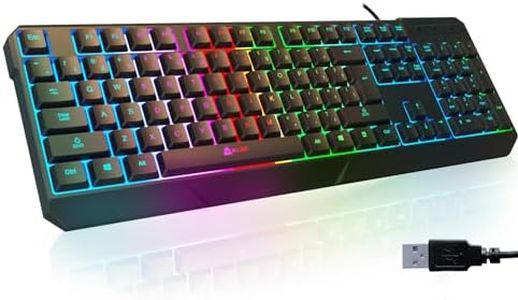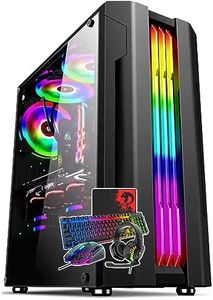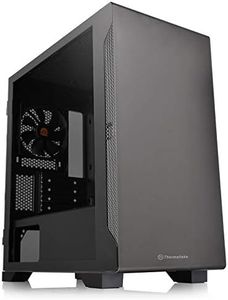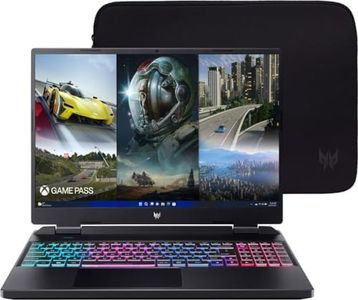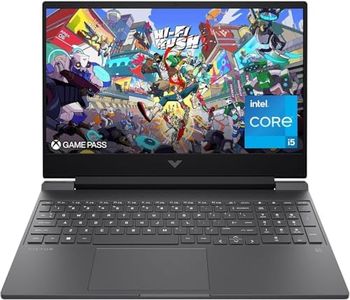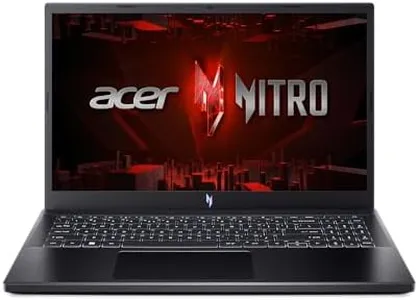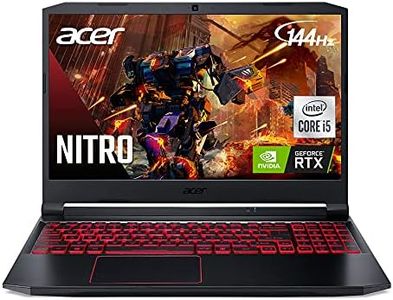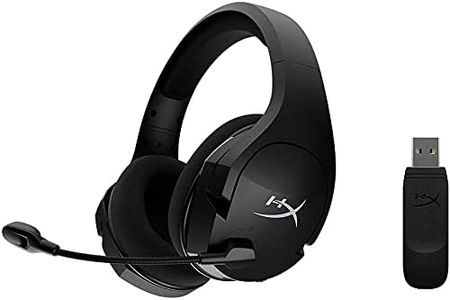We Use CookiesWe use cookies to enhance the security, performance,
functionality and for analytical and promotional activities. By continuing to browse this site you
are agreeing to our privacy policy
10 Best Budget Gaming Pcs
From leading brands and best sellers available on the web.By clicking on a link to a third party's website, log data is shared with that third party.
Buying Guide for the Best Budget Gaming Pcs
Choosing a budget gaming PC can feel overwhelming, especially with so many options and technical terms. The key is to prioritize the components that make the biggest impact on gaming performance and to match your choices with the types of games you want to play. Instead of getting distracted by flashy features, focus on the essentials; even an affordable setup can deliver great experiences if the main components are well chosen.Processor (CPU)The processor, or CPU, is the brain of your PC and plays a major role in running games smoothly. A good CPU is important for making sure your games load quickly, run efficiently, and don’t stutter, especially in newer or more demanding games. Processors are often divided by the number of cores and clock speed—a higher number of cores and faster speeds generally mean better multitasking and performance, but budget gaming often focuses on CPUs with 4 to 6 cores. For most users looking to play modern games at medium settings, a mid-range modern CPU is sufficient. If you mainly play older or less demanding games, a lower-end current-generation processor will be enough. Prioritize a balanced CPU so you don’t bottleneck your graphics card.
Graphics Card (GPU)The graphics card (GPU) is the most important component for gaming, as it determines how fast and beautifully your games will run. It's crucial for rendering game graphics, supporting higher resolutions, and enabling special effects. GPUs come in various performance tiers; entry-level models are best for less demanding games or lower settings, while mid-range cards can handle most modern games at medium to high settings in 1080p resolution. When choosing, think about the games you want to play and the resolution of your monitor. For most budget builds, look for the best GPU you can reasonably fit, as it will maximize your overall gaming experience.
RAM (Memory)RAM, or memory, helps your computer run multiple tasks at once and affects how smoothly games operate, especially when you have other programs open in the background. Most budget gaming PCs come with 8GB or 16GB of RAM. 8GB is often enough for light or older games, but 16GB is increasingly recommended for modern gaming, especially if you plan to multitask (like browsing or streaming while gaming). It’s better to choose slightly more RAM to future-proof your PC, but you don’t need to overspend—most users won’t benefit from more than 16GB in a budget setup.
Storage (SSD vs HDD)Your storage device determines how quickly your PC boots up, loads games, and installs updates. SSDs (Solid State Drives) are much faster and more reliable than HDDs (Hard Disk Drives), making games and your overall system feel snappier. In budget gaming PCs, SSDs of 240GB to 512GB are common and are usually enough for your operating system and a handful of games. If you need more space for a large library, consider adding an additional HDD for bulk storage. Prioritize an SSD for your main drive to keep your gaming experience smooth.
Power Supply (PSU)The power supply (PSU) provides electrical power to all your PC components. It’s important to have a reliable PSU that meets the power demands of your system, especially for a dedicated GPU. Power supplies are rated by wattage and efficiency (like 80 Plus certifications). A budget gaming PC usually needs a PSU rated between 450W and 600W, which leaves room for upgrades. Don’t skimp on power quality—reliable power protects your components and ensures stability during gaming sessions.
Case and CoolingThe case houses all your PC parts and should provide enough space for good airflow and future upgrades. Good cooling (like included fans or airflow-friendly designs) keeps your parts at safe temperatures, which helps performance and extends the life of your PC. When picking a case, consider how compact you want your build to be versus how easy it is to work inside and keep cool. Even budget builds benefit from thoughtful airflow and cooling.
UpgradabilityUpgradability means how easy it will be to improve your PC in the future, such as adding more RAM, swapping in a new GPU, or expanding storage. Looking for a budget gaming PC with extra RAM slots, internal drive bays, and space for larger GPUs can save you money down the road, as you can gradually improve performance without needing to buy a whole new system. Think about your future needs—choosing a slightly more flexible system is wise if you plan to upgrade later.

